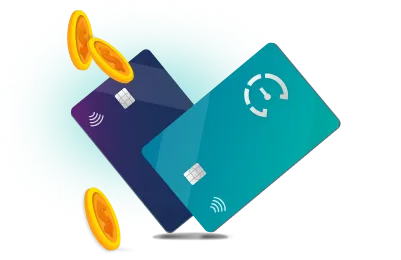Best credit cards for fair credit of 2026
Start building positive credit history. Get matched to credit cards from our partners based on your unique credit profile.⍉

Start your credit journey
Build better credit habits like paying your bills on time, which could help increase your credit scores.
Get perks for spending
Your card matches could give you rewards like cash back or low interest rates.
Enjoy low fees
Get credit card offers with low to no annual fees.
Browse categories
All credit card offers for fair credit
23 partner offers
Credit One Bank® Premier American Express® Credit Card
Ongoing APR: | 29.74% Variable |
|---|---|
Rewards: | 1% (cash back) |
Annual Fee: | $39 |
Terms Apply
Rates and feesCapital One Quicksilver Student Cash Rewards Credit Card
Intro bonus: | Earn $50 Cash Back when you spend $100 in the first three months |
|---|---|
Ongoing APR: | 18.49% - 28.49% (Variable) |
Rewards: | 1.5% - 5% (cash back) |
Annual Fee: | $0 |
Avant® Mastercard®
Ongoing APR: | 35.99%* |
|---|---|
Rewards: | N/A* |
Annual Fee: | $0* |
FIT™ Platinum Mastercard® - $400 Credit Limit
Ongoing APR: | 35.90% Fixed |
|---|---|
Rewards: | N/A* |
Annual Fee: | $99 first year; $125 thereafter |
Avant® Cashback Rewards Mastercard®
Ongoing APR: | 35.99%* |
|---|---|
Rewards: | 1% (cash back) |
Annual Fee: | $39* |
Capital One QuicksilverOne Cash Rewards Credit Card
Ongoing APR: | 28.99% (Variable) |
|---|---|
Rewards: | 1.5% - 5% (cash back) |
Annual Fee: | $39 |
Avant® Cashback Rewards Mastercard®
Ongoing APR: | 35.99%* |
|---|---|
Rewards: | 1% (cash back) |
Annual Fee: | $75* |
Credit One Bank American Express® Card for Rebuilding Credit
Ongoing APR: | 29.74% Variable |
|---|---|
Rewards: | 1% (cash back) |
Annual Fee: | $75 First year. $99 thereafter, billed monthly at $8.25 |
Terms Apply
Rates and feesRevel® Platinum Mastercard®
Ongoing APR: | 35.90% Fixed |
|---|---|
Rewards: | N/A* |
Annual Fee: | $75 - $125 |
Capital One SavorOne Cash Rewards Credit Card
Ongoing APR: | 28.99% (Variable) |
|---|---|
Rewards: | 1% - 8% (cash back) |
Annual Fee: | $39 |
Avant® Cashback Rewards Mastercard®
Ongoing APR: | 35.99%* |
|---|---|
Rewards: | 1% (cash back) |
Annual Fee: | $0* |
Credit One Bank® Platinum X5 Visa® Metal Card
Ongoing APR: | 29.74% Variable |
|---|---|
Rewards: | 1% - 5% (cash back) |
Annual Fee: | $95 |
Terms Apply
Rates and feesFirst Latitude Secured Mastercard® Cash Back Rewards
Ongoing APR: | 27.49% Variable |
|---|---|
Rewards: | 1% - 10% (cash back) |
Annual Fee: | $0 |
Capital One Platinum Credit Card
Ongoing APR: | 28.99% (Variable) |
|---|---|
Rewards: | N/A* |
Annual Fee: | $0 |
Credit One Bank® Wander® American Express® with Dining, Gas & Travel Rewards
Ongoing APR: | 29.74% Variable |
|---|---|
Rewards: | 1% - 10% (cash back) |
Annual Fee: | $95 |
Terms Apply
Rates and feesPREMIER Bankcard® Mastercard® Credit Card
Ongoing APR: | See Rates & Fees |
|---|---|
Rewards: | N/A* |
Annual Fee: | See Rates & Fees |
First Progress Select Secured Mastercard® Cash Back Rewards
Ongoing APR: | 17.49% Variable |
|---|---|
Rewards: | 1% - 10% (cash back) |
Annual Fee: | $39 |
First Progress Prestige Secured Mastercard® Cash Back Rewards
Ongoing APR: | 13.49% Variable |
|---|---|
Rewards: | 1% - 10% (cash back) |
Annual Fee: | $49 |
Avant® Cashback Rewards Mastercard®
Ongoing APR: | 29.99%* |
|---|---|
Rewards: | 2% (cash back) |
Annual Fee: | $0* |
Avant® Cashback Rewards Mastercard®
Ongoing APR: | 35.99%* |
|---|---|
Rewards: | 1% (cash back) |
Annual Fee: | Introductory fee of $75 for the first year. After that, $99 annually.* |
Capital One Savor Student Cash Rewards Credit Card
Intro bonus: | Earn $50 Cash Back when you spend $100 in the first three months |
|---|---|
Ongoing APR: | 18.49% - 28.49% (Variable) |
Rewards: | 1% - 8% (cash back) |
Annual Fee: | $0 |
Credit One Bank® Secured Card
Ongoing APR: | 29.74% Variable |
|---|---|
Rewards: | 1% (cash back) |
Annual Fee: | $0 |
Terms Apply
Rates and feesHow to choose a credit card for fair credit
Avoid annual fees
When you have fair credit, sometimes cards with certain rewards or benefits aren’t worth the cost of paying an annual fee.
Check for 3-bureau reporting
Make sure that your new credit card reports to least one of the 3 credit bureaus (Experian, Equifax® and TransUnion®), so your payments show responsible credit habits.
Find perks that work for you
Look for credit cards that will give you rewards while also helping you improve your credit.
Look for an upgrade
Choose a card that you can easily upgrade for better rewards or terms once your credit scores improve.
Start with your FICO® ScoreΘ and see card offers matched to your credit profile.
Get started for free



























